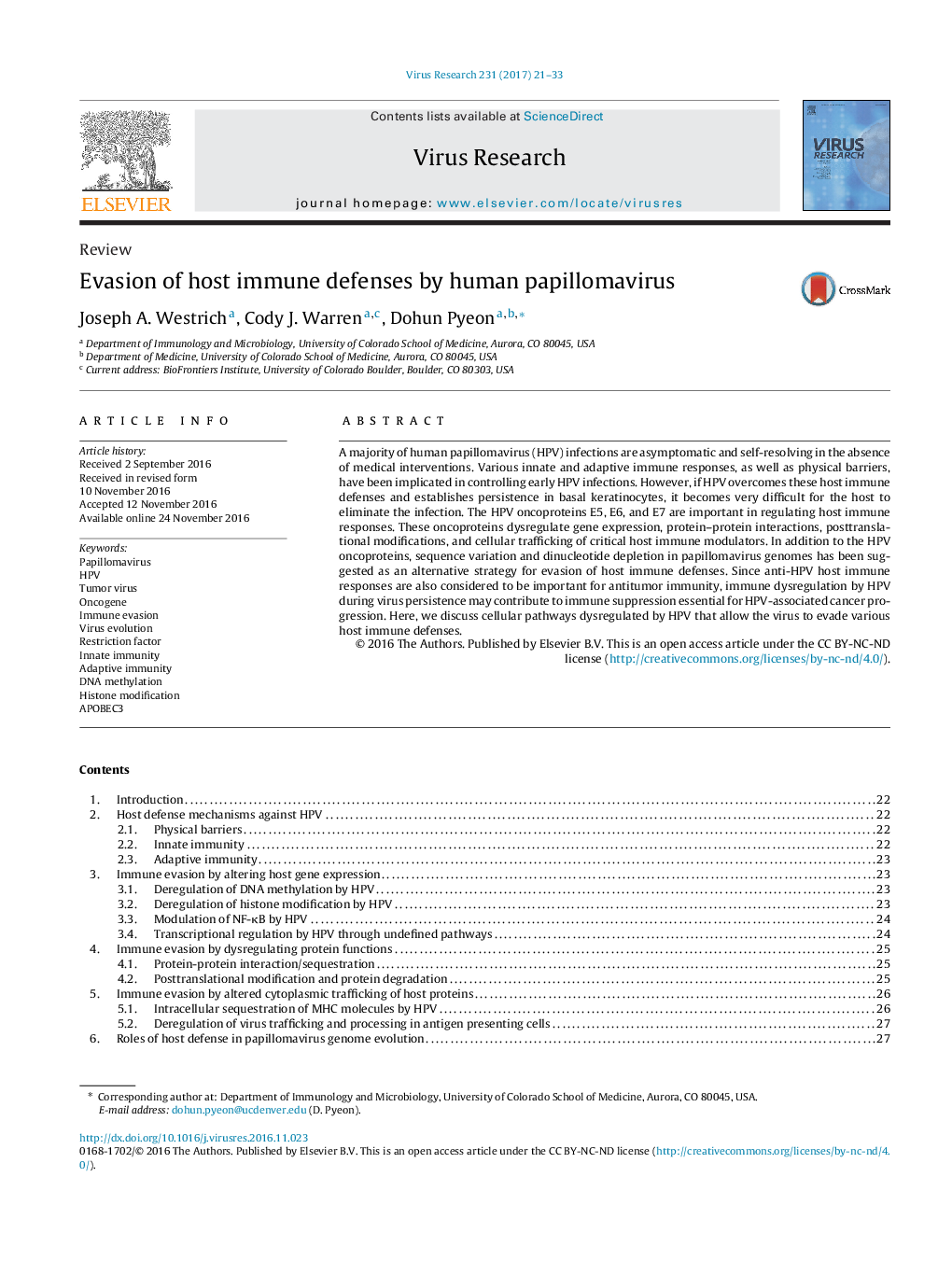| Article ID | Journal | Published Year | Pages | File Type |
|---|---|---|---|---|
| 5675583 | Virus Research | 2017 | 13 Pages |
â¢HPV dysregulates various molecular and cellular pathways to evade host defenses.â¢HPV alters transcription of key immune modulators.â¢HPV E6 and E7 interacts with core proteins of the interferon pathway.â¢HPV E5 and E7 downregulate surface expression of MHC molecules.â¢Papillomavirus genome evolution may be driven by virus evasion of host restriction.
A majority of human papillomavirus (HPV) infections are asymptomatic and self-resolving in the absence of medical interventions. Various innate and adaptive immune responses, as well as physical barriers, have been implicated in controlling early HPV infections. However, if HPV overcomes these host immune defenses and establishes persistence in basal keratinocytes, it becomes very difficult for the host to eliminate the infection. The HPV oncoproteins E5, E6, and E7 are important in regulating host immune responses. These oncoproteins dysregulate gene expression, protein-protein interactions, posttranslational modifications, and cellular trafficking of critical host immune modulators. In addition to the HPV oncoproteins, sequence variation and dinucleotide depletion in papillomavirus genomes has been suggested as an alternative strategy for evasion of host immune defenses. Since anti-HPV host immune responses are also considered to be important for antitumor immunity, immune dysregulation by HPV during virus persistence may contribute to immune suppression essential for HPV-associated cancer progression. Here, we discuss cellular pathways dysregulated by HPV that allow the virus to evade various host immune defenses.
